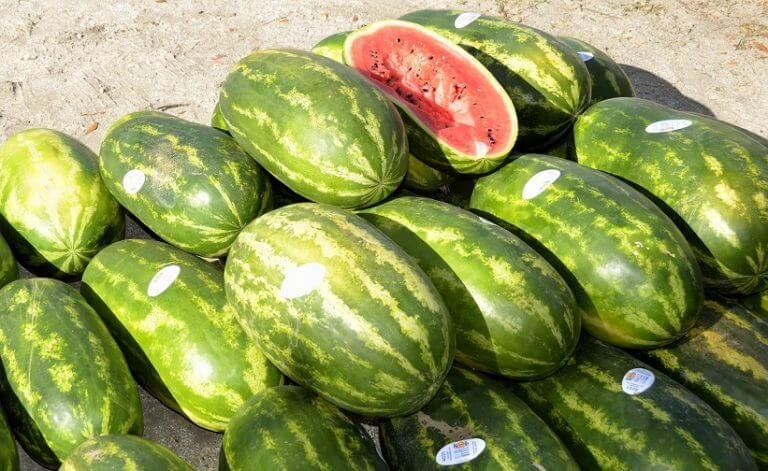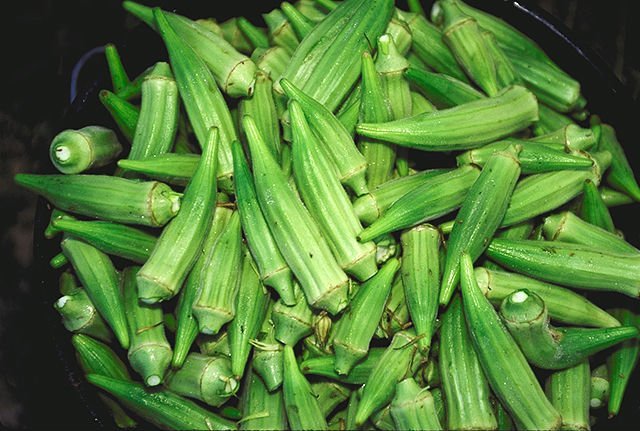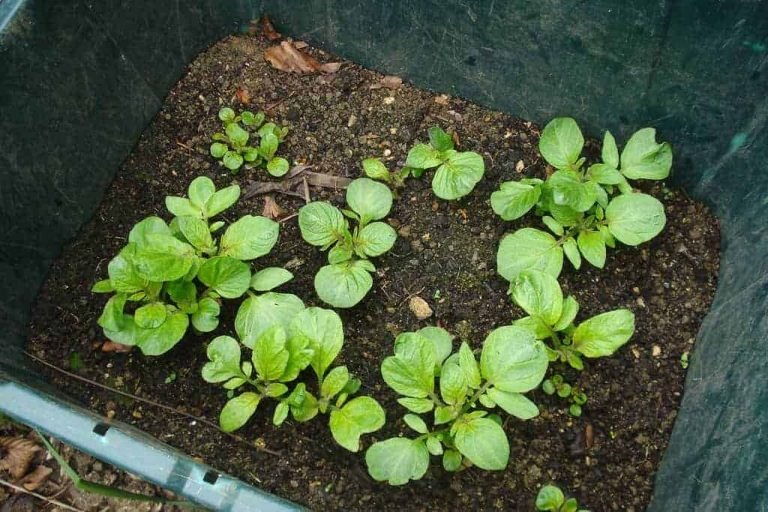Top 10 Carrot Companion Plants 2022 | How To Get Much Carrot Yield

If you are thinking of companion planting for your carrots this season, here is a list of carrot companion plants and crops that will do you good.
Just like many others, you’re asking “What plants can be grown near carrots?”
Carrot is a common root vegetable that most farmers grow. However, how you grow your carrots determines how heavy your yield will be.
That’s why companion planting comes into play.
Companion planting is a strategy of planting crops that positively benefits the other plant in close proximity.
In this article, we have put together a list of carrot companion plants that have been proven to increase your harvest yield.
All you have to do is plant them in close proximity to your carrots.
So, read on for the best companion plants for carrots.

What is Companion Planting?
Companion planting is a natural method that has been used by gardeners for years to aid pollination, keep the number of pests down and maintain a natural balance in your garden.
What this means is that planting some plants close to another will have a beneficial effect on each other’s growth or just be beneficial to one and not affect the other plant adversely
Companion planting is all about planting some plants together because they have characteristics that complement each other.
Some attract beneficial insects, others repel pests, and some go as far as complementing each other’s nutrient requirements
Companion planting is one of the Gardening Tips And Tricks For Beginners that many often ignore.
This Gardening Tips For Vegetable Planting is a welcome development in the gardeners’ world.
However, most gardeners find it suitable for both Raised Bed Vegetable Gardening and Indoor Vegetable Gardening.
Understanding this concept and putting it into use is a great way to make art out of your garden.
I’m pretty sure that is your intention.
Why Should I Adopt Companion Planting?
It’s no longer news that one of the reasons why most farmers do not plant companion crops is because they don’t know what this singular act brings to them.
For vegetable farmers as well as other gardeners, companion planting is an excellent idea and a great step in the right direction.
Some of the benefits of companion planting include
- Companion Plants wards off certain insects and attracts pollinators.
- Also, companion plants are great for shade and support especially for underground plants.
- Companion crops suppress weeds from thriving in the garden leaving the plants to enjoy the soil nutrients.
- Also, companion plants are a great natural and organic method to improve soil quality as Composting. See Composting For Beginners.
- Companion plants help improve plant growth and improve plant health.
All these will only be possible if you pay attention to the companion chart.
Do not overlook the smallest details, if you do, you’re likely to put the healthy growth of your plant at risk.
The 10 Best Companion Plants For Carrot
Here you will find the best pairs for planting carrots.
These companion plants help you harvest healthy and flavorful carrots.
Carrot companion crops include;
#1. Radishes:
Radishes are a class of their own.
Not many plants are recommended to be planted alongside radishes but carrots are a great exception for radishes.
When you plant radishes alongside carrots, it will loosen the soil when they sprout.
Also, they help carrots to grow faster. You need to plant the radishes around the same time you plant your carrot seeds to have the best effects.
#2. Onions:
Onions and carrots are a great combination.
The presence of onions in a carrot field helps repel the carrot fly.
Also, onions can deter many carrot pests and even the most notable carrot rust flies.
Onions are actually one of the best carrot companion plants.
#3. Mints:
Mints are not just companion plants for carrots. They are also Turnip Companion Plants.
Mints have strong-scented leaves which confuse pests that disturb and feed on carrots.
To get the best results from these combinations, you have to plant the mints in pots to prevent them from smothering your crops.
See Easy Vegetables To Grow All Year Round in Pots.
#4. Leeks:
One of the best companion crops for carrots is the leeks.
Leeks and carrots have a mutual relationship. Carrots have positively affected the leeks and vice versa.
By nature, leeks help deter carrot flies, and in return, carrots help repel leek moths.
These two plants: leeks and carrots benefit from each other and get rid of harmful pests.
#5. Nasturtiums:
Another carrot companion plant is Nasturtiums, an ornamental plant.
Nasturtiums are attractive flowers that make a great companion plant to carrots.
When you plant Nasturtiums in close proximity, it repels cucumber beetles, aphids, and other pests.
Also, Nasturtium flowers attract pollinators.
#6. Lavender:
Lavender is a flower, one of the most popular ornamental plants.
Planting lavender on the farm helps attract a large number of pollinators such as bees, butterflies, and hoverflies.
Lavenders confuse pests when you plant them alongside carrots.
#7. Legumes:
All leguminous crops are great carrot companion plants.
Legumes and carrots have a mutual relationship. They benefit from each other when planted together.
By nature, legumes have nitrogen-fixing properties. The beans family such as pole beans and bush beans ensure that the carrots have healthy soil to grow on.
Because plants need nitrogen to grow well and legumes do a great job fixing it.
Therefore, legumes can help in enriching the soil around carrots.
#8. Chive:
Chives Garlic is a member of the onion family.
It’s not edible garlic but it makes a great companion plant to carrots.
Chives Garlic helps deter carrot flies just like onions. Also, planting chives with garlic alongside carrots helps to improve carrot flavor.
The good thing about this combination is that both chives and carrots do not compete with each other for space.
Carrots grow underground and chives by nature have shallow roots.
#9. Lettuce:
Lettuce is one of Turnip’s Best Companion Plants.
This combination is just like chives with garlic. Both plants do not compete with carrots for space.
Lettuce has small roots and can be planted in any vegetable garden.
The leaves of lettuce plants help to keep carrots protected and shaded against some weeds.
#10. Rosemary:
Last on our list of carrot companion plants is rosemary.
Rosemary is a herb plant.
And like most other herbs, its leaves have a strong scent that repels and deters carrot rust flies and masks the smell of carrots.
These plants make good companion plants to carrots. However, you have to merge and plant them well.
To do so, you have to make use of the companion chart.

What Should I Not Plant With Carrots in My Garden?
Gardeners who want to Start A Garden From Scratch should know the ideal combinations to plant.
To make companion planting with carrots easy and possible, you should go for strong-smelling leaves like leeks and onions.
However, some plants do not favor the growth of carrots and do not make the mistakes of planting these plants.
Some plants can hinder the growth of your carrots. Some on the other, attract some dangerous pests to them.
Therefore to get out the best from your carrot farm, keep away these plants from your carrots;
#1. Fennel:
Fennel is that one plant that does not do well with many other plants and carrots is one of them.
This plant naturally attracts a wide variety of pests that harm carrots and other plants.
Ideally, we often recommend that fennels be planted far away from farms.
#2. Potatoes:
As surprising as it may be but do not make the mistake of planting potatoes near your carrots.
This combination is a fatal disaster. Planting potatoes and carrots together will lead to weaker yield and competition.
And that is not a good idea for harvest.
#3. Dill:
One of the not-so-good carrot companion plants is dills.
Dill is another plant that needs to be kept far away from your carrot plants.
Dills can cross-pollinate with any member of the Umbelliferae family.
And that’s not good for a carrot farm because carrots are a member of the Umbelliferae family.
#4. Parsnips:
Carrots and parsnips are not good friends.
They are not the ideal companion plants.
Naturally, carrots are vulnerable to pests such as carrot flies. Parsnips attract these flies.
Also, these flies can also infect carrots thereby rendering your parsnips ineffective and this can lead to harmful pest infestation.
Summary
Companion planting is one of the best ways to maintain a healthy garden and organically maximize your crop yield.
You can plant any of these carrot companion plants to achieve greater results.
What was your experience of planting carrots?
Please leave a comment in the comment section below!!!
Frequently Asked Questions About Carrot Companion Plants
What Do I Cover Carrots With?
Carrot is an underground plant but the soil is not enough to protect the carrots from carrot flies.
To protect them well, you need to cover them with fleece tunnels or you can simply put up barriers around them.How Do I Get Rid Of Carrot Flies Naturally?
Carrot flies always find carrots and they easily hinder a healthy harvest.
To get rid of these pests called carrot flies, you need to employ the companion planting strategy or other methods such as crop rotation, vertical fences, or spraying the farm with bug killers for easy and quick control.Do Carrots Grow Well With Herbs?
Yes, carrots grow well with herbs. However, herbs such as sage and rosemary are the best options as they both help repel carrot flies.Do Carrots Need Lots Of Water?
Yes, carrots need a lot of water just like any other root vegetable.
Statistically, carrots need a minimum of 1 inch of water every week.
While you’re watering it, ensure to have the soil soaked completely.





